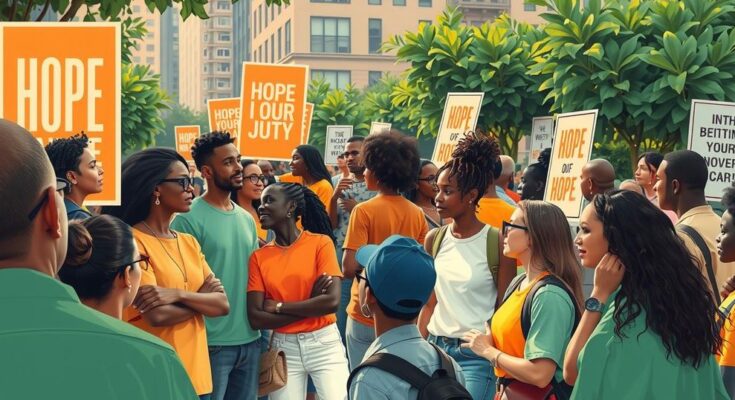Ghana’s struggle against corruption is highlighted by the recent declaration of a former minister as a fugitive by President Mahama’s administration. Both major political parties have historical ties to corruption, necessitating not only governmental reforms but also grassroots activism. Historical examples showcase the importance of public accountability, and current surveys reveal that poorer Ghanaians perceive corruption to be worsening, necessitating a comprehensive approach to fighting graft.
In early 2025, Ghana’s newly elected government under John Mahama demonstrated its anti-corruption intent by declaring a former finance minister a fugitive for evading investigation. This announcement highlighted the ongoing struggle against corruption in Ghana, traditionally associated with the former ruling party, the New Patriotic Party. Moreover, it underscored the damaging consequences of dishonest practices by public officials on the public’s welfare.
However, the issue of corruption in Ghana is complex, as both major political parties have faced scandals throughout their history. Citizens frequently contest injustices and misdeeds by the influential elite. Insights from a new book reveal that the effectiveness of anti-corruption efforts hinges on grassroots organization and activism from the public.
Historically, Ghana’s most organized pre-colonial society was the Asante Empire. Instances of leadership excesses prompted public unrest and the overthrow of inept rulers, showcasing early forms of accountability. In the coastal Fante areas, commoner-led defense groups, known as “asafo,” enforced chief accountability. These groups retained significance until colonial authorities curtailed their powers in the 1920s.
The tradition of protests against corruption resurfaced during the post-colonial period, particularly amid political upheavals, such as the coups led by Flight Lieutenant Jerry Rawlings. Activists often associated corruption with systemic inequalities rather than merely personal failings, emphasizing that it primarily benefits a select few at the expense of the majority.
The advent of multiparty democracy did not diminish the radical perspectives on corruption and inequality. Critics argue that Ghana’s leading political parties often alternate in power primarily for personal gain. Standard anti-corruption approaches focus predominantly on performance metrics and external evaluations, frequently disregarding societal nuances and dynamics.
The Afrobarometer surveys reveal significant discrepancies in perceptions of corruption among Ghanaians, particularly by economic status. For example, in 2019, a substantial 67% of poorer respondents observed worsening corruption, compared to 47% of wealthier citizens. While all groups acknowledged high-level misconduct, poorer individuals expressed concerns over more immediate corruption, such as bribery to access essential services.
Though Ghana has established various laws and institutions aimed at combating corruption, the effectiveness of these measures is hindered by bureaucratic inertia and limited political will. Activists contend that real progress relies on both governmental and grassroots actions. Effective anti-corruption strategies must involve ordinary citizens, who often bear the brunt of corrupt practices.
In conclusion, curbing corruption in Ghana necessitates a multifaceted approach that includes both top-down governmental measures and grassroots mobilization. While political leaders, such as John Mahama, initiate important declarations and policies, the sustained efforts of the populace are equally vital in holding officials accountable and seeking tangible improvements within their communities.
In summary, Ghana’s fight against corruption is multifaceted, requiring enhanced governmental measures as well as active participation from its citizens. Historical precedents underscore the importance of grassroots actions in holding leaders accountable. Current anti-corruption initiatives must prioritize the experiences and voices of ordinary Ghanaians, particularly those most affected by corruption, to foster genuine and effective reform.
Original Source: www.inkl.com




